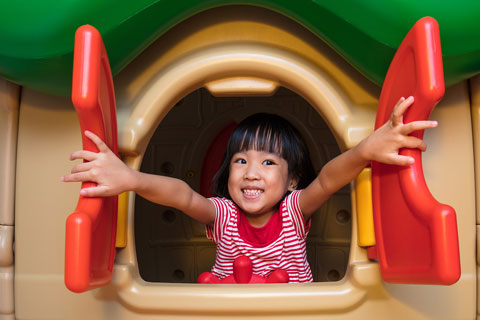Is your child forgetful, crabby, or constantly tired? He may be “overscheduled.” Child care. Music lessons. Art class. Peewee sports. Play dates. Custody arrangements. Would you be surprised to find your child’s day is as hectic as your own? People who study young children say that youngsters need time for unstructured activity—what adults sometimes call “free time” or “down time.”
Why is free time good for children?
- Health. A child’s body and brain need relief from demands and expectations. Rest and recreation help keep a child healthy and ready to learn!
- Independence. Unstructured time lets a child make choices. A child who is used to an intense schedule may feel a bit lost if she has to find something to do on her own. But she needs to experience making her own decisions. Allowing her some free time helps her learn to occupy and entertain herself.
- Play and learning. Children and adults need time to reflect on what they learn. A child can play in ways that let him connect new information with what he already knows. Play can also help him master stressful situations that interfere with learning. Daydreaming may be a way to figure out how to solve a problem.
- Active play and self-regulation. Active play helps a child have a healthy, fit body. During free play, she can run, jump, climb, throw, and dance until she is tired. Then she can pause, have a drink of water, and play quietly in the sandbox with a friend. She will learn to pace herself during unstructured active play.
What can I do to create more free time?
- Allow more family “down-time.” If you’re overscheduled, your child may be too!
- Think about your goals. Does your 3-year-old really need violin lessons, swimming class, and play group after child care? Or can something wait until he’s older?
- Check in with your child. Ask if he feels his days are too full or if he wants more time to play or relax.
What can I do with my children when they’re home?
- Encourage creativity. Even empty boxes or a mud puddle can inspire your child. Cook, put puzzles together, or make models. She will enjoy feeling competent and being close to you.
- Provide plenty of outdoor experiences. Walk, shoot baskets, garden, skate, ski, go to the playground, or just find things to do in the back yard.
- Show your child how to play games. Card games, board games, and physical games encourage friendly interaction and build family relationships.
- Make arrangements for your child to have unstructured play with other children.
- Stroll or bike to museums, construction sites, or other interesting places together.
- Make time to daydream, talk, listen, cuddle, and be “lazy” together.
IEL Resource
- Resource List: Children’s Play – More than Fun and Games


 PDF
PDF